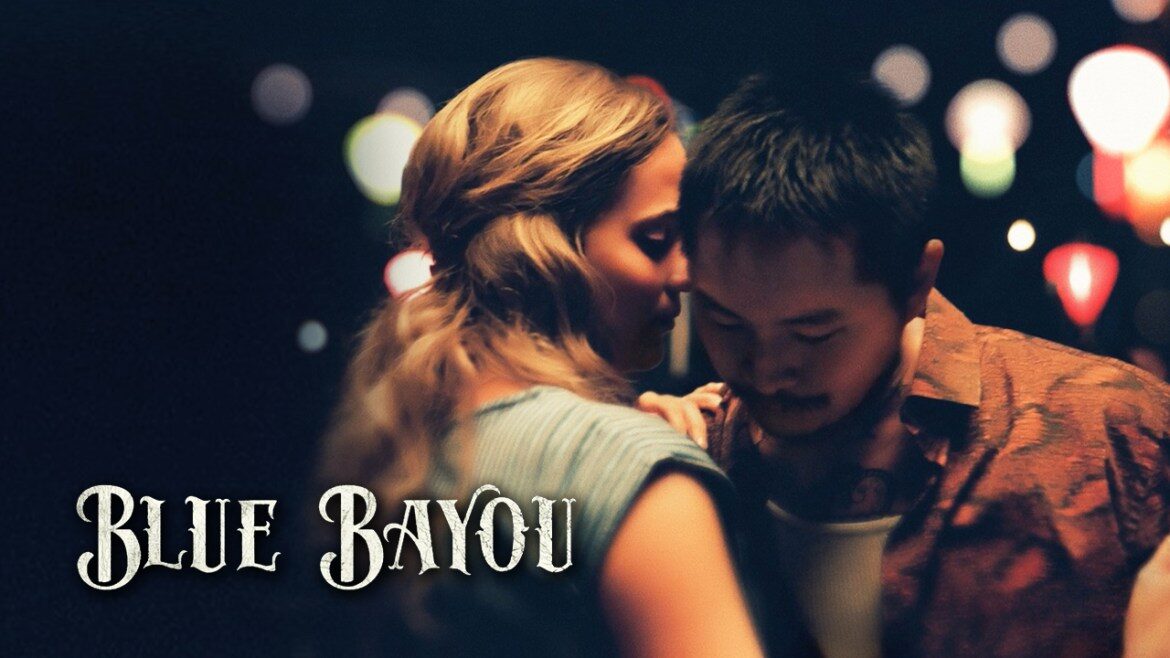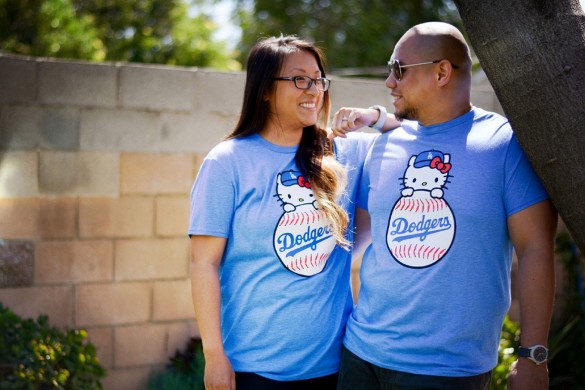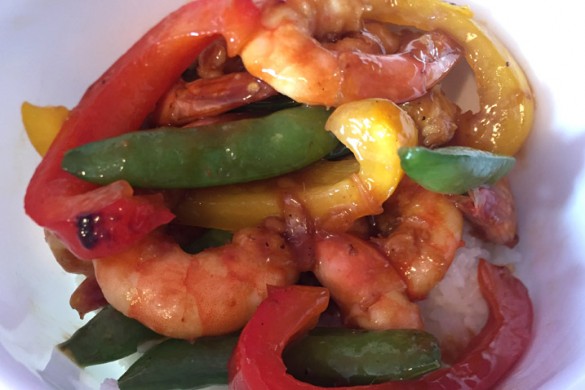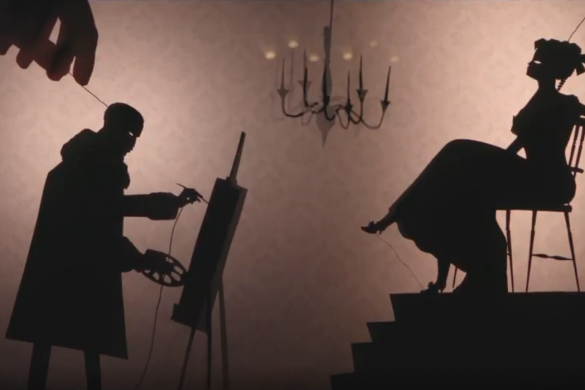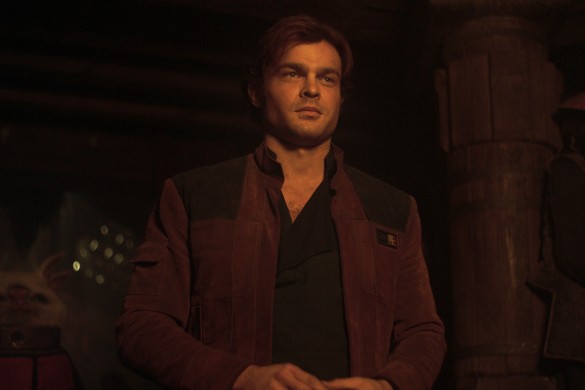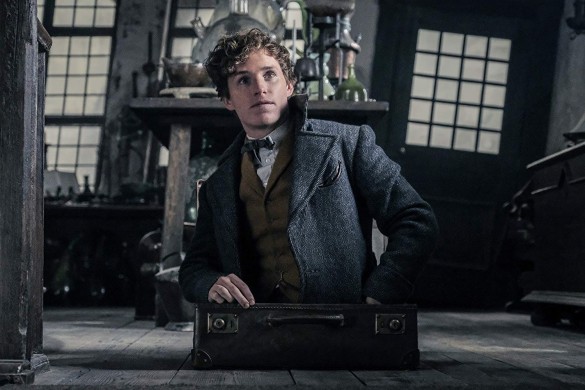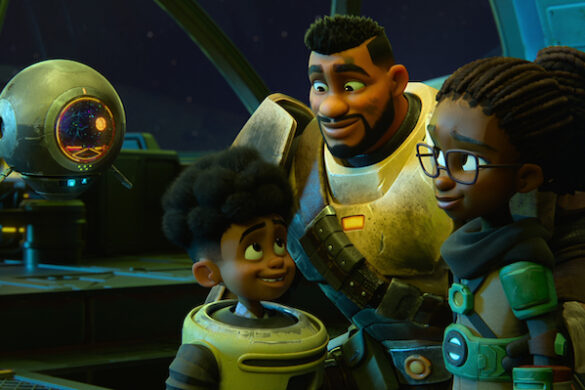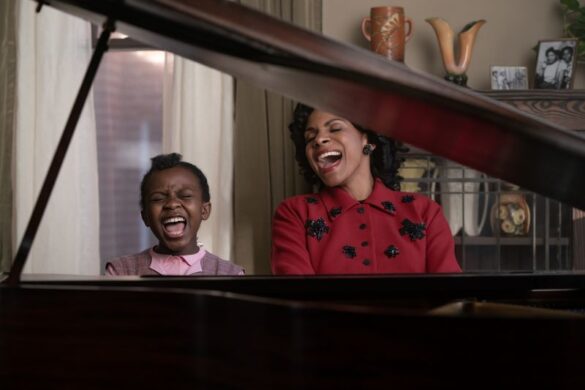Films like Justin Chon’s “Blue Bayou” remind us, albeit heavy-handedly, of the nuances that come with self-discovering one’s identity within the complexities of what makes us American in modern times and how we grapple with how other’s see us. Though it isn’t subtle in terms of outlining how broken our immigration system currently is, Chon looks at what it means to be an American beyond what’s on paper and how others use their prejudices to decide what that means.
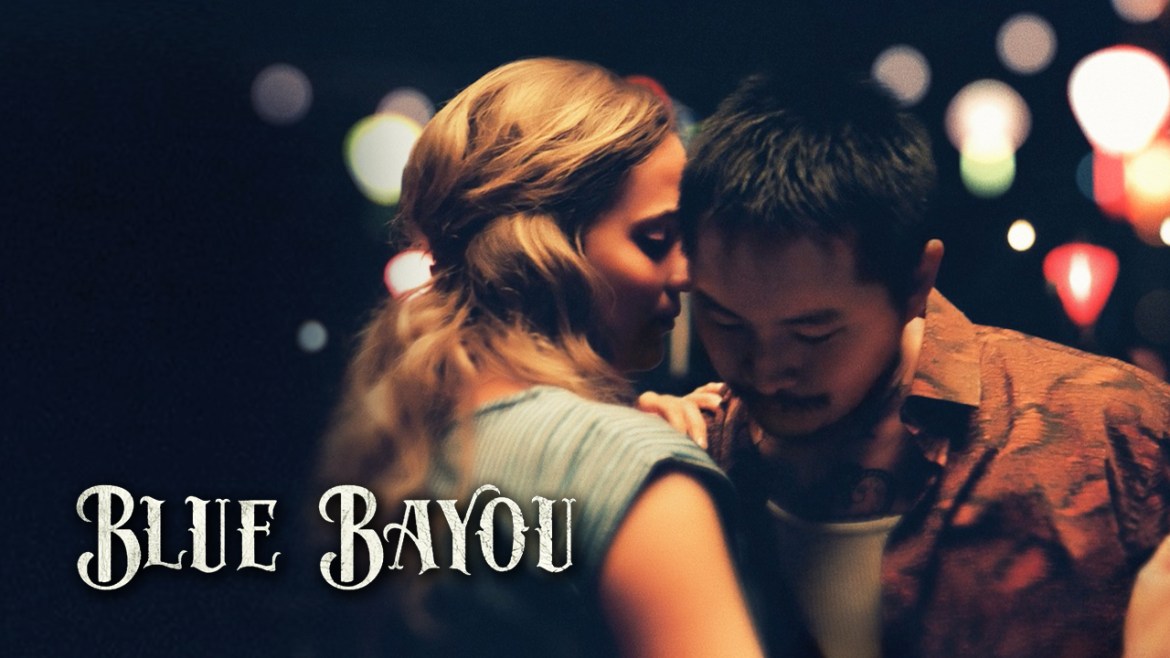
“Blue Bayou” centers on Antonio LeBlanc (Chon), a Korean adoptee and New Orleans freelance tattoo artist desperately looking for a new job to provide for his family. He is the stepfather to a sweet and brilliant young girl named Jessie (Sydney Kowalske), and he is about to have a child with his wife Kathy (Alicia Vikander), who is carrying his unborn baby girl. Though Antonio has a criminal record and lifestyle choices like the chest tattoos or him racing his motorcycle through the backwaters of New Orleans, some believe that he is nothing more than an interloper and a bad influence on Kathy. But we can see through the bond that he shares with Jessie and Kathy, he does all he can to care for the family that has accepted him for who he is.
But tone suddenly shifts during an altercation with the police, which lands Antonio in jail. After his release, we come to discover that because of his immigration status, he is about to be deported unless he can provide the evidence and witnesses who can offer their testimony to support his citizenship. Usually, that would not be a tough sell, but he doesn’t have many options because of his criminal record and his traumatic past with his adoptive family. On top of that, he is barely making ends meet. He has bills and tattoo station fees to pay, along with the legal costs he has incurred to help him through the immigration process.
Still, his bond with his family remains unshaken. Throughout all of this, he is doing everything for the good of his family. Even when Jessie questions if he will love her any less after the baby arrives, Antonio provides her with the answer that proves he will be the kind of father that stays no matter what happens. Seeing this in action and hearing his fatherly words makes it all that much difficult to process because we know what is coming.i
Though the film may center on Antonio’s journey to becoming an American citizen, the film’s beating heart is its human story. In its groundedness, we have a man who is trying to become a better version of himself and trying to move past his past traumas so that he can dedicate himself to becoming a family man, a loving father, and a husband who can provide. Yet, at the same time, we see that, like any human, he can fall back into old habits. This is especially true when Antonio risks everything so that he can retain his immigration lawyer.
And underneath that layer are themes of belonging and identity. Despite being welcomed to Kathy and Jessie’s circle, others, including his adoptive family, have created a distance between themselves and him. That sense of rejection has varying effects on Antonio. At times, he may be numb to the silent treatment he gets from his disapproving mother-in-law or be sensitive to the fact that Jessie may need to spend some time getting to know her birth father, Ace, who walked out on them. But then there are times where that rejection opens old wounds. For example, during one of the more pivotal moments of the film, we learn that he lied to Kathy about his mother being dead. That lie was more about protecting himself from others asking about his upbringing, which was filled with trauma. And the only reason why he lied is that in addition to never completing the adoption papers, she didn’t help him when he needed it most, even though he was always protective of her whenever his adoptive father beat them.
But Antonio’s fight to stay an American is on paper. The truth of it all is that he is already an American but has to deal with the fact that he is also Asian-American. In the beginning, when we see him at a job interview, a faceless man asks where he’s from. But, of course, to many Asian-Americans, this only awakens awful memories of ignorance as the answer to that question is not about where but what’s our ethnic identity. For Antonio may have been born in Korea, but he was raised in America. And he is married into an American family. Even his Cajun accent tells us that he is from the bayou.
So, when it comes to discovering his Asian identity, we see that in two separate parts. One of which is his connection to Parker, a Vietnamese American who is dying of cancer. Through her, we see a different side to what it takes to become an American for some immigrants and the sacrifices that are made to ensure that future generations have a better life in America. Much of Antonio’s embracing of the Asian-American identity is through his friendship with Parker. Parker’s invitation for Antonio shows how Asian immigrants adapted themselves to their new American surroundings while staying true to their roots.
In a way, Parker’s terminal illness serves as a mirror to Antonio’s experience as an American. For as she is slowly dying, so is his life he’s only known. It’s an inevitable death that helps put things in perspective for Antonio, who already has to deal with a lot. But, at the same time, it forces him to come to terms with his Asian identity.
The confrontation of the Asian identity comes to pass when Antonio recalls the blurred memories of a traumatic past where his mother tried to drown him as an infant. The underwater perspective looking upward provides audiences with a unique dream-like visual that a lovely blue. But it is what is above the coldly haunting surface. Because during that sequence, we overhear Antonio’s mother softly singing a lullaby as she lowers him into the water.
Chon’s “Blue Bayou” weaves a powerful message of the strength of humanity in the midst of a crisis, all the while telling us a story about discovering one’s identity. It may be melodramatic at times, which can muddle what the writer and director want to say to us, but the humor and heart woven into the film keep us fully engaged.
Blue Bayou opens nationally on September 17.
Blue Bayou Directed & Written by Justin Chon and Starring Justin Chon & Alicia Vikander
8/10

